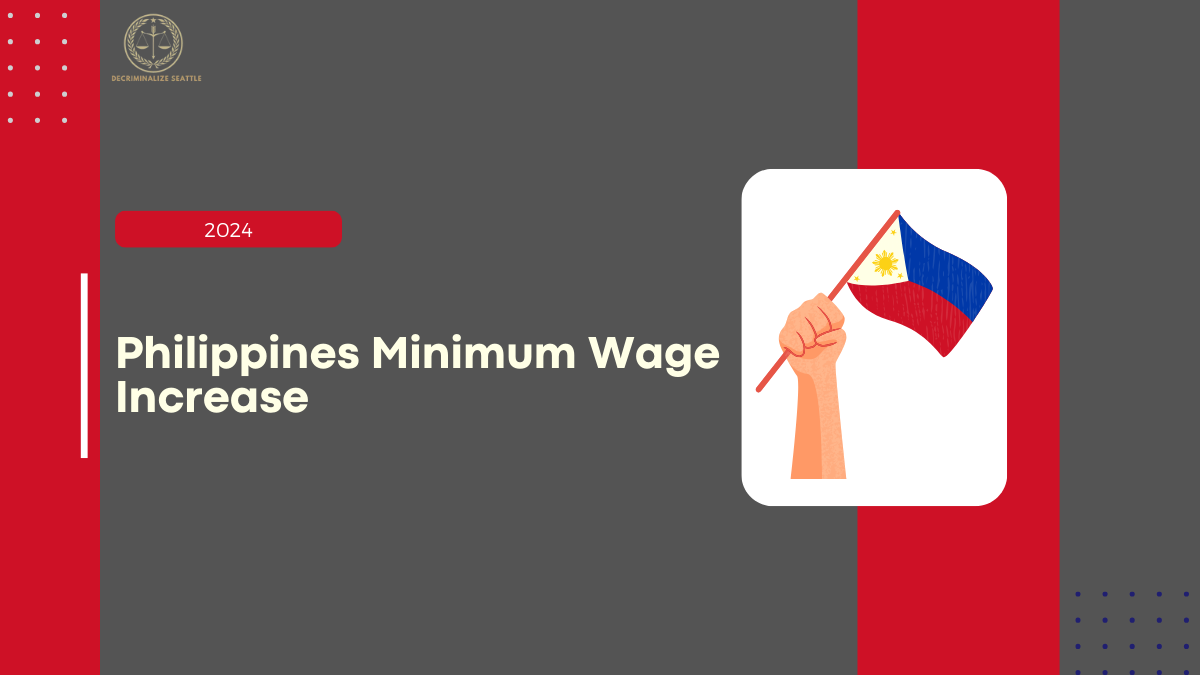The details of the Philippines Minimum Wage Increase 2024, including the expected wage adjustments and implementation dates, are outlined here. These wage increases aim to boost the country’s GDP and ensure financial stability for workers. The wage hike is expected to impact working individuals across various sectors significantly.

Philippines Minimum Wage Increase 2024
Wage hikes have been introduced across several industries, including services, agriculture, education, and non-agricultural sectors, in response to public demand. Many citizens urged the government to raise wages to help manage the rising costs of living. The Wage Council considered crucial factors, such as gender equality and poverty reduction, in determining the increase. In 2023, the minimum wage stood at $186.97 USD, and for 2024, it will rise to PHP 610 per day.
What is the Minimum Wage in the Philippines?
The minimum wage is the lowest amount employers are legally required to pay their workers for their services. This provision ensures workers are fairly compensated for their efforts. Over the years, this minimum wage regulation has greatly benefited many workers who were previously underpaid for their hard work.
In 2023, the hourly wage for workers in the Philippines was $186.97 USD, which has been adjusted over time to keep pace with inflation and the rising cost of living. It is a common misconception that people living alone face fewer expenses. However, while individual costs may vary, basic living expenses remain significant.
Projected Minimum Wage Increase for 2024
As part of the Asia-Pacific region, the Philippines is experiencing growth in several sectors. The government has taken steps to improve employment and economic conditions, which include increasing wages for civilian employees. This wage adjustment is expected to enhance the quality of life for workers and contribute to the country’s economic development.
In addition to wage increases, various industries are seeing growth: a 6.5% rise in goods, 6.8% in technology, and 6.7% in retail and wholesale. The increase in wages will also reflect the growing capabilities of Filipino employees, who will now receive pay more in line with their contributions.
New Wage Dates for 2024
The Department of Budget and Management has implemented a four-tranche system for wage increases, beginning on January 1, 2024. This progressive increase is set to continue until 2027. According to the Department of Labor and Employment, the minimum wage increase will have a significant positive impact on workers, based on data from previous years.
This increase marks a record high for wages, which will be deposited directly into workers’ bank accounts. While 5.008% of the population remains unemployed, 56.46% are currently employed, and the government is working to improve these figures to further boost the country’s gross domestic product (GDP).
Workers will soon notice a rise in their salaries, with the updated figures reflected in their pay scales. Employees are encouraged to check their bank accounts to ensure the wage increase has been applied.
What is the Average Salary in the Philippines?
Salaries in the Philippines vary depending on the industry and an individual’s skills. For example, in the IT sector, the average salary is PHP 82,500, while it stands at PHP 33,575 in healthcare, PHP 2,200 in accounting and finance, and PHP 45,000 in business process outsourcing (BPO). Human resource professionals earn around PHP 65,000, and those in the insurance industry make about PHP 72,000.
Employees in the banking sector earn up to PHP 17,000, while construction workers receive approximately PHP 15,000. In the food industry, salaries are around PHP 16,000, with entertainment professionals earning up to PHP 17,000. Marketing professionals may earn around PHP 18,000, depending on the nature of their work.
Conclusion
Across these sectors, preparation is key to securing a government job, which typically offers higher salary packages compared to private companies. While private sector jobs also provide decent pay, the benefits and security offered by civil service roles often outweigh those in the private sector. Ultimately, it’s up to individuals to make the best career choices for themselves and their families, whether in government or private employment.
Click here to know more.